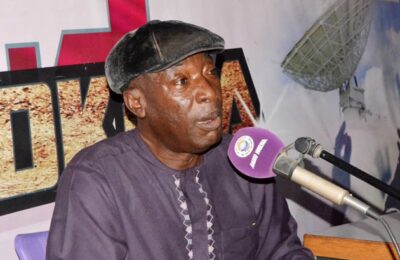The word “politics” has become synonymous with negativity, with terms like hate, character assassination, rancor, and acrimony often used to describe the current state of affairs. But is this what democracy truly stands for? As we approach election season, it’s essential to reflect on the role of politicians and whether they are adequately equipped to lead in a democratic society.
The politics of hate has become a common tactic used by candidates to gain traction and sway public opinion. Deliberate efforts are made to divide communities based on race, religion, or socioeconomic status, instilling fear and mistrust among voters. This tactic not only damages the fabric of society but also reveals a lack of understanding and respect for the values of democracy.
Another disturbing trend in politics is character assassination, where personal attacks and baseless accusations are used to discredit opponents. This has shifted the focus from policies and solutions to personal attacks, breeding a toxic environment of negativity and hostility. Such actions not only undermine the credibility of candidates but also create a sense of mistrust and disillusionment among voters.
Rancor, defined as bitter, long-standing resentment or ill will, has also become prevalent in the political landscape. Instead of working together towards a common goal, politicians often engage in destructive behavior, seeking to undermine each other and gain an advantage. This toxic environment makes it difficult for any real progress to be made, hindering the very principles of democracy.
In addition to these negative aspects, agrimony or bitter conflict and resentment among politicians has become a common occurrence. This not only cripples the government’s ability to function effectively but also creates a sense of disillusionment and hopelessness among citizens.
So, is this the democracy we envisioned when our forefathers fought for the right to vote and choose our leaders? The answer is a resounding no. The foundation of democracy is built on the principles of equality, justice, and respect for all individuals. It is a system of governance where the people have the power to choose their leaders and hold them accountable for their actions.
Therefore, it is high time for politicians to receive training in democratic governance before seeking positions in elections. This could help them understand the true meaning of democracy, the importance of healthy discourse, and the responsibility that comes with holding a public office. Such training could also include sessions on ethical conduct, conflict resolution, and building consensus, essential skills for effective governance.
Moreover, candidates should be held accountable for their actions and words. Political parties and the media should also play a crucial role in promoting a culture of healthy competition and constructive criticism, discouraging the use of hate speech and character assassination.
In conclusion, politics of hate, character assassination, rankor, and agrimony have no place in a democratic society. As responsible citizens, it is our duty to demand better from our leaders and push for the implementation of training programs for politicians. Let us remember that democracy is not just about winning an election; it’s about the well-being and progress of the nation as a whole. It’s time to take a step towards a more positive and productive political landscape.
– Benjamin Ibrahim, a Retired Permanent Secretary, writes from Lokoja.




